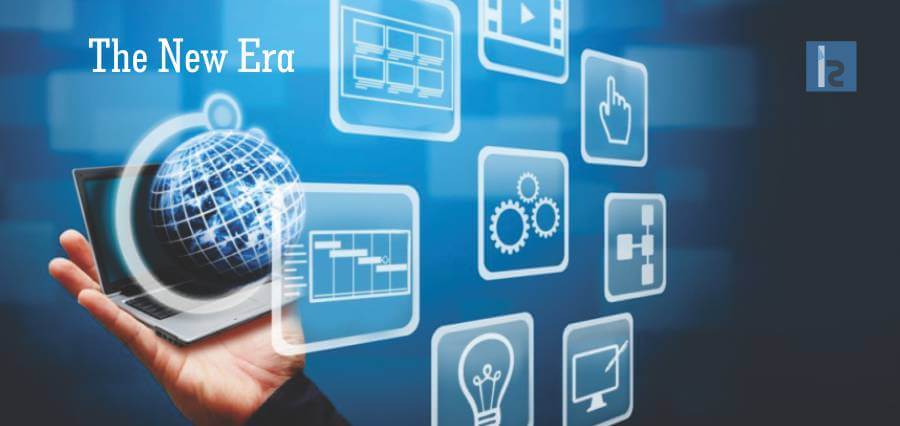By the turn of century, the Indian educational sector has witnessed a gigantic change and continues to evolve at a steady pace. Since inception, education sector has been given utmost importance; however the growing imbalance of the student-teacher ratio stands to be a major concern in meeting the objective of imparting education to all. Also, traditional education has failed to transform itself in order to be relevant for today’s educational requirements. With the advent of technological innovations, E-learning and digital platforms are playing a crucial role in helping to bring a step change to ensure quality education for everyone.
With the passage of time and increased availability, the changing trends in education sector have created a broader choice for the students. Independent researchers suggest that by the end of 2018, the e-learning sector in India is expected to reach $1.29 billion, which is a staggering growth of seventeen percent. E-learning is a revolutionary concept which assists to deliver impactful courses that are fun and engaging. Incorporating e-learning into education sector have also helped to increase the IT skills of the teaching staffs. As the majority of workplaces have transformed into digital workplaces, e-learning is becoming widely popular platform in delivering education effectively.
The Paradigm Shift
Traditional education systems are slowly losing their relevance as both students and educators are embracing what e-learning offers – convenience, personalization, and agility. Merging education with technology has opened new gateways in terms of reach, quality, and awareness. The rapid increase of robust internet ecosystem has been an important catalyst for the growth of e-learning platform in the country. Other prominent factors like Government initiatives, multitude of local and global players is assisting e-learning make further inroads. The education sector is witnessing a paradigm shift from a one-size-fits-all factory approach, to a much more agile and tailored form of learning. Innovations like e-books, e-content, e-learning technologies have introduced a plethora of developments in the existing teaching methodologies.
Tapping New Horizons
As the number of internet users in India soars above five hundred million, India’s potential as a huge e-learning market is enormous. Majority of new users are accessing internet from their smartphones which is an ideal, personalized and commerce-enabled platform for e-learning education. Working as a cohesive unit, platform providers have played the role of content providers and curators of online modules. Emerging business models have further broadened the scope of online education in India. The C2C model provides a platform that connects prospective teachers with students whereas B2B business model offer higher education, where institutes accredit degree or diploma courses to students either through their own platform or by collaborating with third party aggregators.
Emerging Categories in Online Education
Although online education sector is witnessing a steady growth, few key categories are dominating the online education sector and are the driving force to enhance e-learning in India. Some of the mentionable categories are:
Primary and Secondary Education
Adoption of online supplementary courses alongside tuitions and classroom training is on a high note. Evolving consumer behavior is the major reason for this upsurge. Majority of science students are adopting this mode as it helps them for preparing for competitive exams in addition to the school curriculum.
Test Preparation
This category has the potential to be the highest growing sector in online education as it can evolve as a genuine substitute or supplement to the existing offline test preparation market. Independent researchers predict that online test preparation market is expected to be an eleven billion USD market by 2021.
Reskilling and Online Certifications
The online reskilling and certification market is growing at a steady pace due to the requirement from the professionals in corporate sectors. Continuous evolving technologies and demand from new entrants to the workforce is another prime reason for high demand.
Higher Education
Innovative learning technologies like virtual labs provide convenient access and increases acceptance of online education in the higher education sector. MBA and MCA courses are dominating the higher education sector in online domain.
Language and Casual Learning
The online language learning space is driven by the demand of learning English and other foreign languages. Language courses have a higher adoption rate as compared to other hobby related courses. The learning market is expected to grow further as industry players come up with newer, differentiated alternatives.
Future Prospective
Technology is leading to a revolution as every student is getting exposed to a world-class education system, something which is not available in the traditional system. With computers and digital elements entering the classrooms, students are finding it more exciting and easy to adapt the new environment. Innovative digital tools, applications, tablets, and laptops have transformed learner’s education process and delivery procedures as they are more engaging, entertaining and exploring. Evolution of ed-tech sector has made it possible for education to be accessed from anywhere and anytime. The ratio of online education in the rural sector is on a high trajectory as a result of affordable high-speed internet and direct-to-device-technologies are empowering students to access quality education. Going forward, there would be a convergence of digital and physical worlds, as internet becomes more flexible and accessible to everyone.


